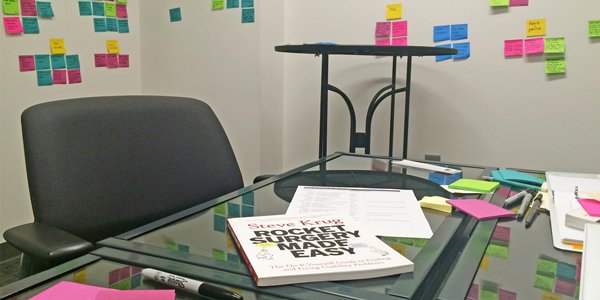
While developing the curriculum for User Research Practices, a course that introduces usability testing, user interviews, surveys, and field observations, I read Steve Krug’s Rocket Surgery Made Easy. Steve’s book explains how to bring usability testing into your organization’s process.
Below are three principles from the book that resonated with me. We’ve built all three principles into the User Research Practices course.
All sites have usability problems
While some sites have more usability problems than others, every site has usability problems. Usability problems occur when users struggle to understand a site’s content or struggle to complete a task on the site. Students will finish the User Research Practices course knowing that usability testing is the best way to identify those problems and fix them.
Focus on fixing the most serious usability problems first
As Steve says in his book, “it’s easy to get distracted by less serious problems that are easier to solve, which means the worst ones often persist.” It may seem like a good use of time to fix five small problems before addressing one severe usability problem. But focusing on easy fixes first often means you run out of time to fix severe problems.
Students will work on team projects while they’re at Center Centre. When conducting usability studies throughout these real-world projects, students will learn how to prioritize usability problems and focus on the most severe problems first.
You’ll always have more usability problems than you have resources to fix those problems
Even with plenty of budget and plenty of time, it’s challenging to address every usability problem revealed through usability testing. We’ll prepare our students for this reality. They’ll learn to triage usability testing problems so they can spend their resources fixing the things that will contribute most to the user experience.
Apply to be a student
Would you like to become a well-rounded UX designer who can conduct user research studies? Apply to Center Centre today to be a student. Do you have friends or family members who would make great students? Please tell them about us. We look forward to hearing from them.

